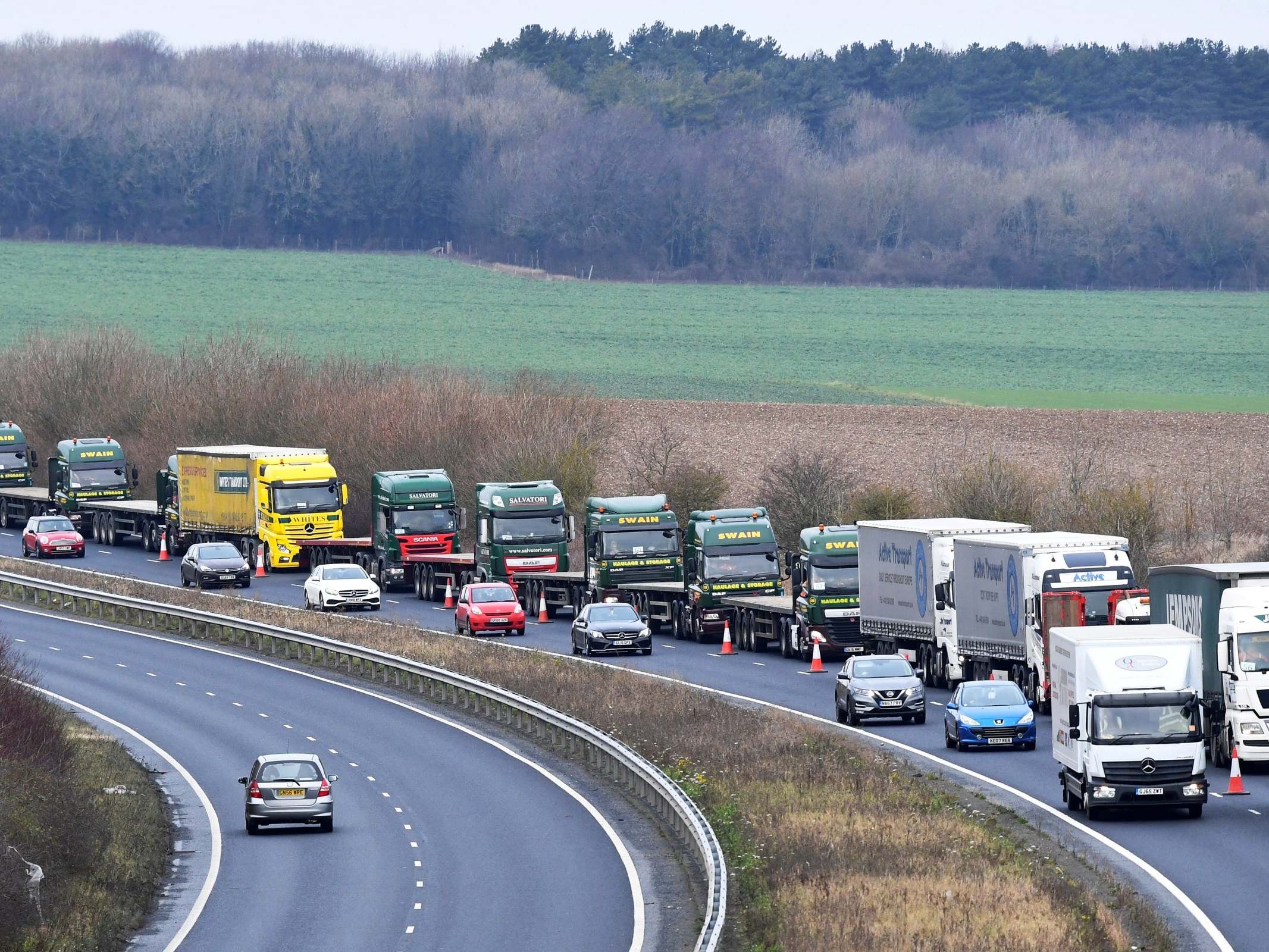No-deal Brexit contingency plan triggered by Michael Gove for worst-case scenario
No-deal supremo warns danger of UK crashing out of the EU at the end of this month has increased because of Boris Johnson's Commons defeat
Your support helps us to tell the story
From reproductive rights to climate change to Big Tech, The Independent is on the ground when the story is developing. Whether it's investigating the financials of Elon Musk's pro-Trump PAC or producing our latest documentary, 'The A Word', which shines a light on the American women fighting for reproductive rights, we know how important it is to parse out the facts from the messaging.
At such a critical moment in US history, we need reporters on the ground. Your donation allows us to keep sending journalists to speak to both sides of the story.
The Independent is trusted by Americans across the entire political spectrum. And unlike many other quality news outlets, we choose not to lock Americans out of our reporting and analysis with paywalls. We believe quality journalism should be available to everyone, paid for by those who can afford it.
Your support makes all the difference.Michael Gove has triggered the government’s Operation Yellowhammer contingency plan to put in place measures to cope with a no-deal Brexit.
Mr Gove – who was appointed no-deal supremo in Boris Johnson’s cabinet – said that the risk of the UK crashing out of the European Union without a deal on 31 October had been increased by the prime minister’s dramatic House of Commons defeat on Saturday.
He warned MPs that the European Council may not grant the extension to the Brexit process requested by the prime minister or may delay their decision beyond the Halloween deadline on which the UK leaves with no deal by default.
Mr Gove was today chairing an unusual Sunday meeting of the cabinet’s no-deal Brexit preparations committee.
He told Sky News’s Sophy Ridge on Sunday: “The risk of leaving without a deal has actually increased because we cannot guarantee that the European Council will grant an extension.
“That is why I will later today be chairing a cabinet committee meeting – extraordinarily, on a Sunday – in order to ensure that the next stage of our exit preparations and our preparedness for no deal is accelerated.
“It means that we are triggering Operation Yellowhammer. It means that we are preparing to ensure that if no extension is granted – and we cannot guarantee that an extension will be granted – that we have done everything possible in order to prepare to leave without a deal.”
Mr Gove said that the only way MPs can now guarantee no deal does not happen is to vote for Mr Johnson’s deal.
“Parliamentarians have a choice,” he said. “There is a sure thing in front of us and that is the prime minister’s deal, that honours the referendum mandate.
“And if people vote for it, then we can leave, and we can leave in an orderly way. But if they don’t vote for that deal, then the risk is that the European Council will say, ‘That’s it. We’re not interested in delay. You decided not to back the deal that we’ve backed, and we say is a good deal. I’m afraid that’s it.’”
Mr Gove confirmed that, unlike Theresa May’s deal, the package negotiated by Mr Johnson means the UK faces another no-deal cliff edge at the end of December 2020 if the PM fails to secure a free trade agreement.
Rather than falling back on the backstop – now removed from the deal – if no trade agreement has been signed by the end of a 14-month transition period, the UK would be left to either request an extension to the transition or to leave under World Trade Organisation rules, viewed by most economists as far less favourable.

“The constitutional position is that beforehand, with the backstop, it would have been the case that if we didn’t conclude a deal, we would have been kept in arrangements against our will from which we could not exit,” said Mr Gove.
“We can absolutely exit. We do not want to leave with no deal and it’s up to MPs. It’s only possible if MPs vote to leave with no deal. I believe MPs will vote for the prime minister’s deal and for a good free trade agreement.”
- Supporters of a Final Say referendum on any Brexit deal can sign a letter demanding a public vote at peoples-vote.uk/letter

Join our commenting forum
Join thought-provoking conversations, follow other Independent readers and see their replies
Comments